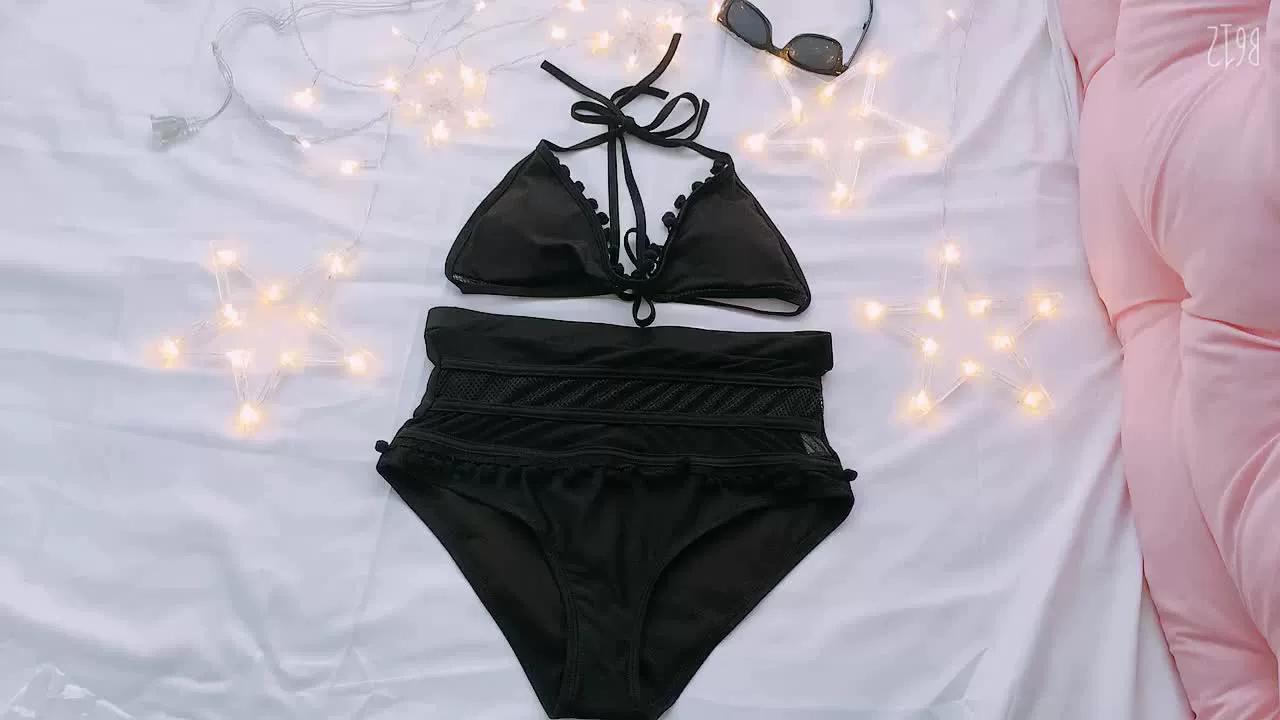
The Evolving Landscape of Women, Bikinis, and Sexy Representation
The phrase “woman bikini sexy” evokes a complex interplay of societal expectations, personal empowerment, and evolving cultural norms. What was once relegated to pin-up art and objectification has, in recent years, been challenged and redefined by women themselves. This article delves into the history, impact, and future of this multifaceted concept, exploring how women are reclaiming the narrative surrounding bikinis and sexuality.
A Brief History of the Bikini
The bikini, named after Bikini Atoll, the site of nuclear weapons testing in 1946, debuted shortly after. Its initial shock value stemmed from its departure from the more modest swimwear of the time. The two-piece garment, revealing the midriff, was considered scandalous and even banned in some countries. However, its popularity grew, fueled by its appearance in popular culture and the changing attitudes towards women’s bodies.
Early depictions often leaned towards objectification, with the “woman bikini sexy” image being heavily marketed towards a male gaze. Actresses and models were frequently presented as passive objects of desire. This portrayal contributed to unrealistic beauty standards and pressure on women to conform to a narrow definition of attractiveness. [See also: Historical Swimwear Trends]
The Shifting Sands of Representation
The latter half of the 20th century witnessed a gradual shift. While objectification persisted, women began to assert more agency in how they were portrayed in bikinis. The rise of feminism and body positivity movements challenged the status quo, advocating for diverse body types and the right for women to define their own sexuality. The concept of a “woman bikini sexy” started to evolve beyond mere visual appeal.
Today, the conversation is far more nuanced. The “woman bikini sexy” image can represent confidence, self-love, and empowerment. Social media platforms have provided a space for women to showcase their bodies on their own terms, challenging traditional beauty standards and celebrating diversity. Influencers and activists are actively promoting body positivity and inclusivity, encouraging women to embrace their natural beauty regardless of size, shape, or skin tone.
The Male Gaze vs. Female Empowerment
The distinction between the male gaze and female empowerment is crucial. The male gaze, a concept popularized by film theorist Laura Mulvey, refers to the way women are often depicted in visual media from a masculine, heterosexual perspective. This can lead to the objectification and sexualization of women, reducing them to their physical appearance. The “woman bikini sexy” image, when viewed solely through the male gaze, reinforces these harmful stereotypes.
However, when a woman chooses to wear a bikini and feels confident and empowered, it becomes an act of self-expression and reclamation. It’s about owning her body and defining her own sexuality, free from external pressures or expectations. The “woman bikini sexy” is not defined by what others think, but by how she feels. It’s about self-love, confidence, and embracing one’s own unique beauty. [See also: Body Positivity and Social Media]
The Impact on Body Image and Self-Esteem
The pervasive imagery of women in bikinis, both positive and negative, has a significant impact on body image and self-esteem. Constant exposure to idealized and often unattainable body types can lead to feelings of inadequacy and body dissatisfaction. This is particularly true for young women who are still developing their self-identity.
However, the rise of body positivity movements and the increasing representation of diverse body types in media are helping to counteract these negative effects. By showcasing a wider range of shapes, sizes, and skin tones, these movements are promoting a more realistic and inclusive definition of beauty. The “woman bikini sexy” image, therefore, can be a tool for promoting positive body image, if it encompasses a wide variety of women.
Navigating the Digital Landscape
The digital age has further complicated the conversation around women, bikinis, and sexuality. Social media platforms provide a powerful tool for self-expression and empowerment, but they also expose women to online harassment, body shaming, and unrealistic beauty standards. The “woman bikini sexy” image is constantly being shared, commented on, and analyzed, often with little regard for the woman’s agency or feelings.
It’s crucial to cultivate a critical eye when consuming media and to be mindful of the potential impact on body image and self-esteem. It’s also important to support initiatives that promote body positivity, inclusivity, and online safety. The “woman bikini sexy” should not be synonymous with unrealistic expectations online.
The Future of Women, Bikinis, and Sexuality
The future of the “woman bikini sexy” image depends on continued efforts to challenge traditional beauty standards, promote body positivity, and empower women to define their own sexuality. It requires a shift in perspective, from objectification to appreciation, from judgment to acceptance. The goal is to create a world where women feel confident and comfortable in their own skin, regardless of what they choose to wear.
This includes promoting diverse representation in media, challenging harmful stereotypes, and fostering a culture of respect and inclusivity. It also requires ongoing conversations about consent, agency, and the importance of respecting women’s choices. The “woman bikini sexy” should be a reflection of self-love and personal empowerment.
Ultimately, the phrase “woman bikini sexy” should represent a celebration of women’s bodies, their confidence, and their right to express themselves freely. It’s about reclaiming the narrative and redefining what it means to be a woman in a bikini, on her own terms. The evolution of the “woman bikini sexy” reflects a broader societal shift towards greater acceptance, inclusivity, and female empowerment. The modern understanding of a “woman bikini sexy” includes self-love, body confidence, and personal choice, moving away from objectification. The concept of a “woman bikini sexy” is constantly evolving, influenced by social movements and cultural shifts. The modern interpretation of a “woman bikini sexy” celebrates diversity and individuality. The power of defining what it means to be a “woman bikini sexy” lies with the woman herself. The phrase “woman bikini sexy” should represent empowerment, not objectification.
Conclusion
The journey of the “woman bikini sexy” from objectified image to a symbol of empowerment is ongoing. By acknowledging the historical context, challenging harmful stereotypes, and promoting body positivity, we can create a more inclusive and respectful future where women feel confident and empowered to express themselves on their own terms. The true meaning of “woman bikini sexy” lies in the self-love and confidence of the individual, not in the gaze of others.

